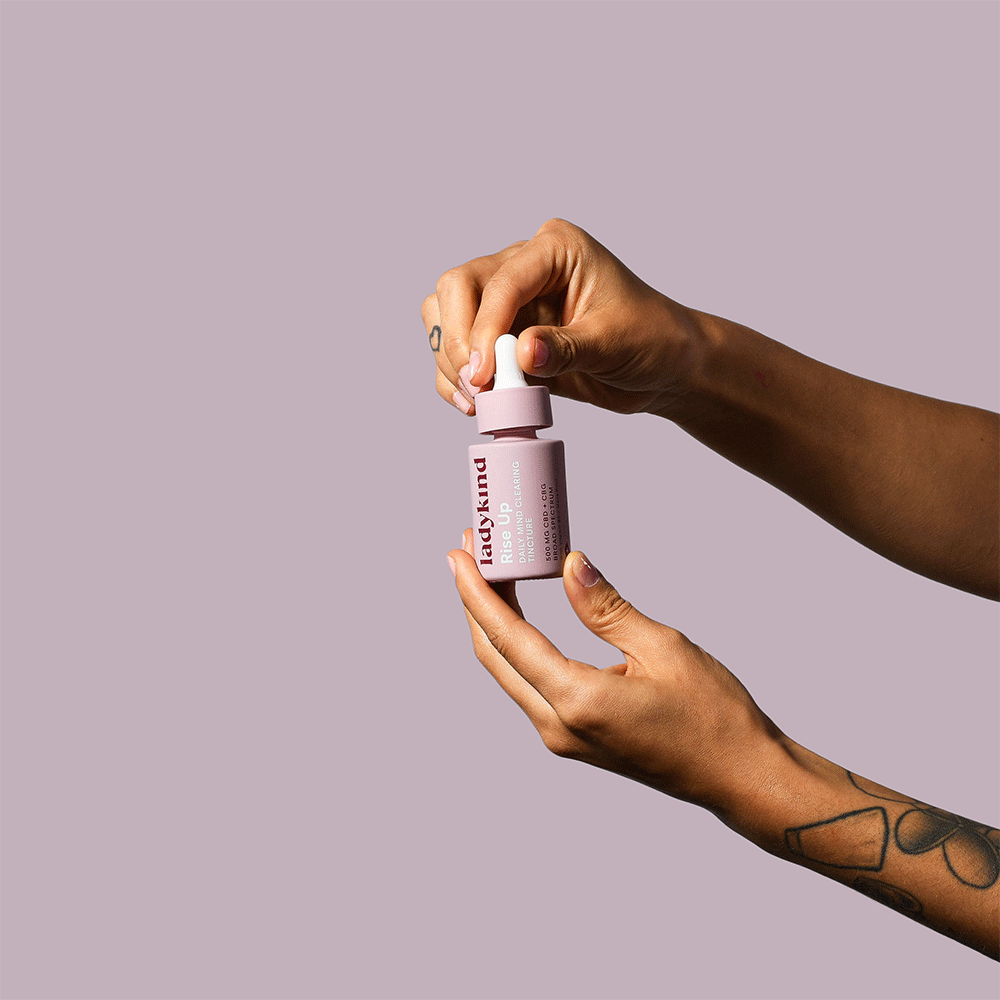If you’ve experienced sleep deprivation you can attest to the reach of its impact on other critical aspects of wellbeing like mood, stress, concentration, and energy. While your body is asleep, your brain is hard at work restoring balance to your hormones, repairing tissue damage, processing emotions, and consolidating memories. Hence, when sleep patterns are inconsistent or your quality of sleep is subpar, you feel the ripple effect. You may experience brain fog, chronic fatigue, lack of motivation, or an array of other symptoms as a result of poor emotional regulation. A critical piece of information to keep in mind is that all of these symptoms stem from the same root: disturbance to your circadian rhythm. In today’s blog, we’ll explain how to hack your circadian clock as a natural insomnia aid that actually works. Let’s get into it.
What is the circadian clock?
Your circadian rhythm is essential to both your mental and physical health. Your circadian clock refers to the natural, 24-hour cycle that regulates your sleep-wake cycle (sleep patterns), hormone production and release, and other physiological functions necessary for survival, like maintaining a normal body temperature. This internal clock synchronizes with environmental elements, such as daylight and darkness, that signal your body to either rise up or wind down. When your circadian clock is misaligned with these natural environmental cues, it introduces health concerns like insomnia, fatigue, and mood swings.
How to reset your circadian rhythm
If you’re in need of insomnia aids that actually work, we recommend resetting your circadian clock. Unlike prescription medications that only offer palliative solutions, taking the time to reset your circadian rhythm tackles the root of the problem for palpable, sustained results. Follow these steps to reset your body’s internal clock and swiftly improve your quality of sleep.
1- Have a sleep routine
One of the most underrated ways to keep your sleep cycle in check is to train your body to go to bed and wake up at the same time each day. Yes, even on the weekends. Consistent sleep schedule habits allow your body to fall into a rhythm that naturally recognizes when it’s time to fuel energy and concentration, and when its time to unwind into a restful night of relaxation.
2- Expose yourself to natural light early in the day
Daylight has a huge influence on your circadian rhythm. The best way to hack natural sunlight for your circadian clock’s benefit is to go outside, particularly in the morning, for at least half an hour. Create a routine of taking a morning walk when you first wake up, or just sitting outside on a bench to soak up the sun.
When you expose your body to natural sunlight, it suppresses melatonin production (the sleep hormone) to keep you awake and alert throughout the day. Additionally, natural sunlight exposure boosts serotonin production, contributing to a better mood and increased energy levels.
3- No screens one hour before bedtime
Because light exposure signals your brain to wake your body up, this is also why we don’t recommend doom scrolling close to your scheduled bedtime. Your brain interprets natural and artificial light the same way. Meaning, your phone, tablet, computer, or TV screens prompt your brain to stay alert, making it difficult to fall asleep.
At least one hour before your scheduled bedtime, dim the lights, turn off the TV, and put the phones and tablets away. This signals your brain to tell your body it’s time to start winding down.
4- Create a soothing bedtime ritual
As bedtime approaches, the more you prime your brain to relax, the more quality sleep you’ll get. Some of our favorite bedtime rituals include taking a warm epsom salt bath, curling up in bed with some anti-inflammatory tea and a good book, meditating, or putting on some sleep sounds. In general, you want to avoid eating heavy meals and any stimulating activities later in the evening.
5- No caffeine or alcohol 4-5 hours before bed
More specifically, limit caffeine and alcohol after the sun goes down. Both of these substances pose a threat to your circadian clock, so it’s best not to consume them at least 4-5 hours before you go to bed. Instead, opt for other herbal options that promote rest and relaxation.
Tackle insomnia by regulating your circadian clock
Although it requires some significant lifestyle changes, regulating your circadian rhythm is the most effective way to treat sleep disturbances. Incorporating these tactics into your nighttime routine synchronizes your body with its surrounding environment. These environmental cues encourage appropriate neural activity at the appropriate times of day.
What’s more, a synchronized circadian clock encourages healthy production of melatonin and serotonin respectively when your body needs them. In summary, this internal-external homeostasis improves sleep and gives way to better cognitive function, immune support, and emotional regulation. Follow these steps to reset your circadian rhythm and reduce the likelihood of sleep disturbances, wake up with more energy, and stay more alert throughout the day.
When you’re ready to adopt better sleep habits, consider utilizing a natural women’s health supplement, such as Wind Down, Ladykind’s award-winning hormone-balancing tincture according to the Beauty Shortlist. This powerful remedy is revered for providing pain relief, improved stress management, and alleviating sleep conditions. Thus, lean on this sublingual tincture is an effective insomnia aid, aka your ticket to a better night’s sleep. Get yours today on ladykind.com and enjoy 20% off when you enter discount code WINDDOWN20 at checkout. Enjoy!






